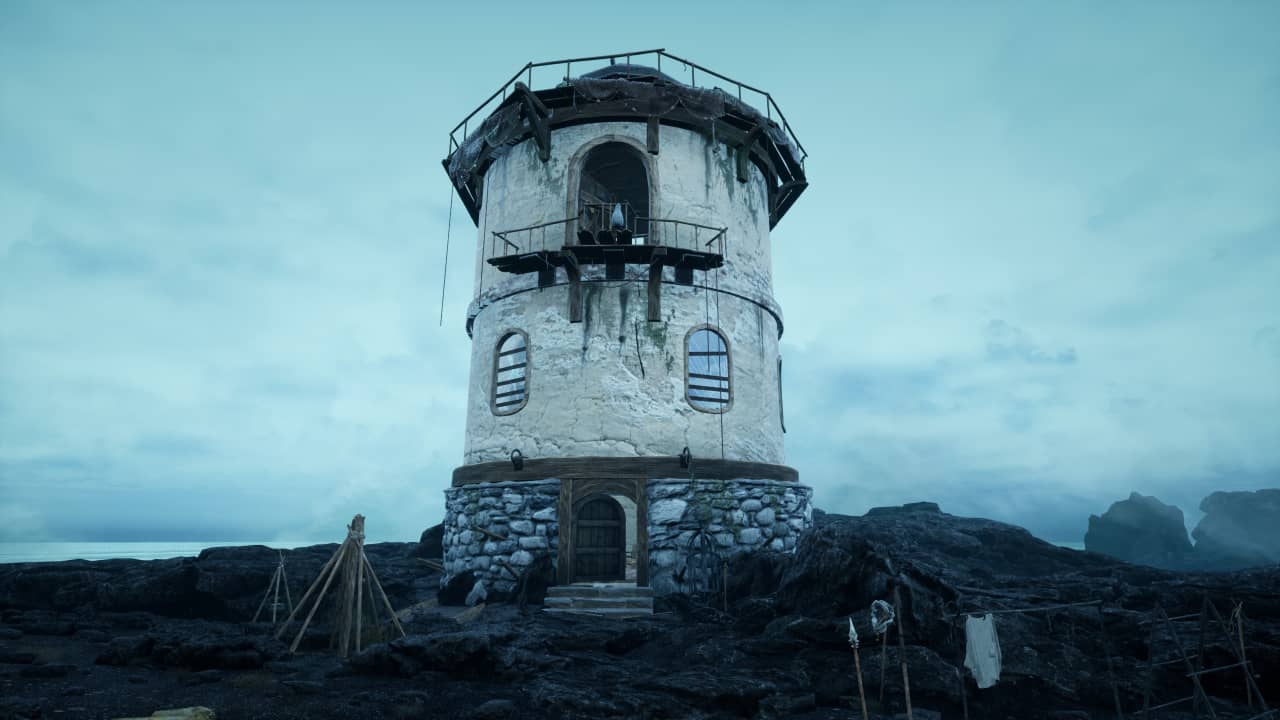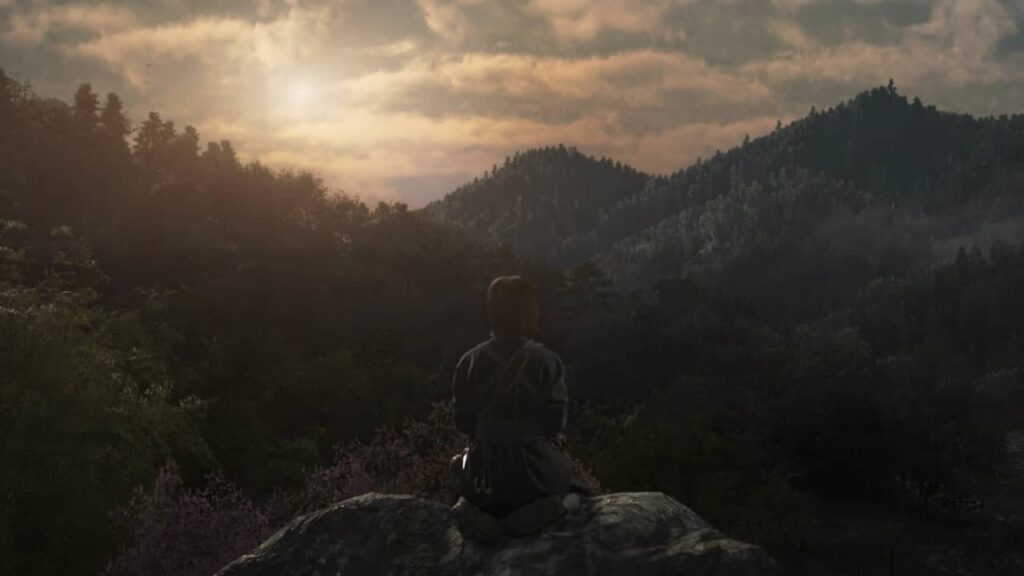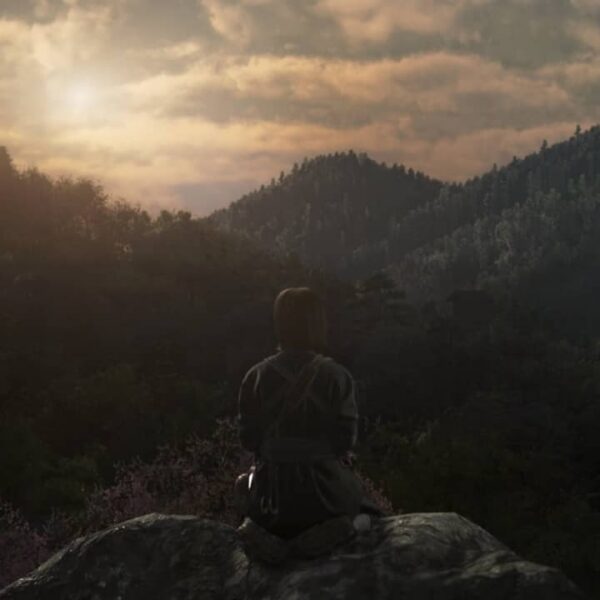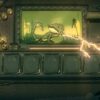The sea terrifies me, The Shore, not as much. You could trace that to a bad memory, and you’d be right. Experiencing a major tsunami first-hand affects you, but irrespective of that, it’s a bit like the paranormal in the unknown.
Lovecraft connected with the sea, among other related vices, and his depiction of these sea dwellers only makes the concept even more frightening. Merpeople are comical, but scratching the surface on the creatures of Ib or the more famous The Shadow Over Innsmouth makes The Shore a title with an immediate atmosphere.
You play Andrew, a fisherman trying to reconnect with your estranged (aka dead) daughter. Before you know it, the island is playing tricks on you, making you believe she’s talking directly to you. Well, something is talking to you, that’s for sure. Or is that for shore?
The Shore Review (PC)
The Shore is a stunning walking simulator at first. The tides that rock back and forth are beautiful but aren’t the best. This isn’t a ‘The Shore review in the context of a benchmark’. We all have different setups and are a little irrelevant in this approach. While the 3D modelling and textures are gorgeous, the game’s mood makes it.
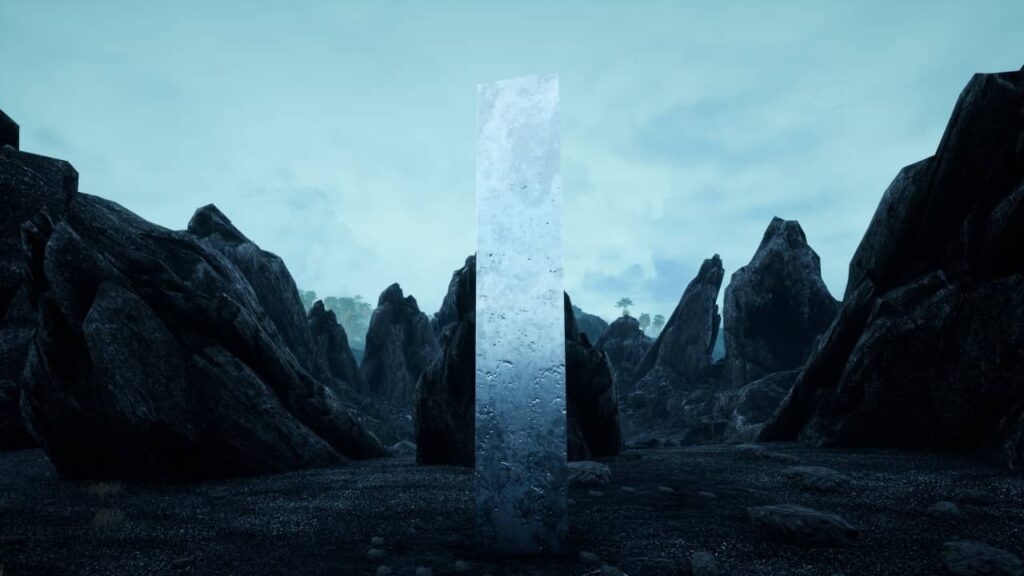
Like Lust From Beyond, developer Ares Dragonis has a penchant for Lovecraft and, in my limited knowledge, does the works a great justice. The initial bleakness shifts to doom and terror as you notice these behemoths within the first ten minutes, Gantz-like black orbs and tentacles galore.
With the walking simulator components, you do come across some very easy puzzles and the usual spin of an object on its axis, albeit, there, thankfully, isn’t that much here. They almost all serve a purpose.
As for the Lovecraft elements, no doubt the developer knows their onions. There are plenty of references to the collected works of H.P. Lovecraft, and in that aspect, it’s superb. If there will be anything that will undo all this hard work, it is the gameplay experience.
Cutting One’s Eyelids
While cutting one’s fingers and eyelids is far from appetising, as revealed in the message in the bottle notes you find scattered across the shore, there is a consistent menace throughout. However, the initial gameplay is just so…dull. With the rocks on the shoreline, it isn’t clear what you can step over and what you can’t until put in practice. The Shore isn’t about invisible walls, but invisible steps – despite the open landscapes, it’s very restricting where you can go.
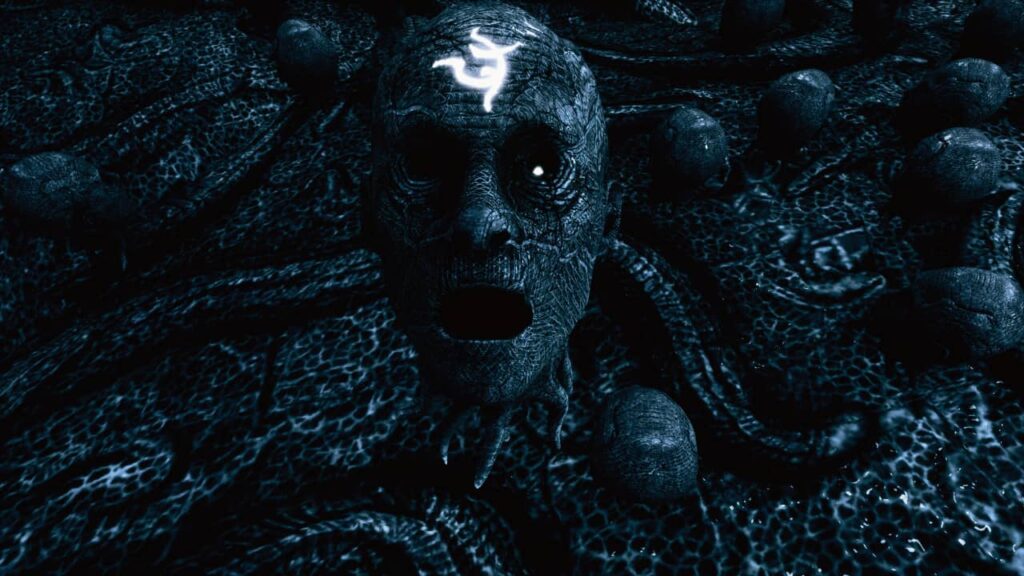
There are no shortcuts in the game, and while you’re getting your steps in, not having any interaction or clues on what to do gets frustrating. If I had a £1 for every time I reached a dead end and then had to retrace my tracks, I’d have made about £7. New areas will open up – where there were rocks is now a welcoming path, but follow it to the end, and it’s another dead end unless you have ‘the thing to use with the thing to do the next bit’.
You’ll also have access to an artefact that keeps enemies at bay (though expect to see instant respawning in The Shore).
This element of gameplay hurt the experience for me. When you know the paths, it’s easier, but you’ll incur some repeat deaths from overpowered eldritch enemies that are relentless in their assault. There are no health, stamina or magic gauges; you can only take a handful of hits until it’s all over, and you must repeat. It’s such a polar opposite of the early wandering that it feels like a different game.
Short And Bittersweet?
You can’t have your cake and eat it though, especially with gamers so hard to cater for. Think of playing Mortal Kombat, then halfway through shifting to Gran Turismo. That’s an extreme example, and The Shore doesn‘t use Gorilla Glue to stick them together, but it could have worked better with one or the other. You can’t please everyone.
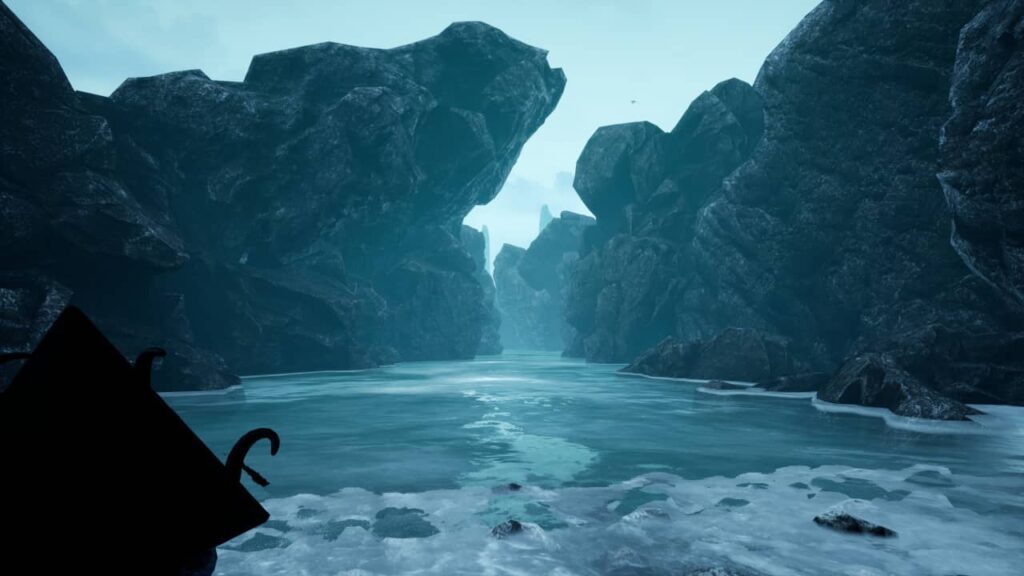
Short games are often seen as a negative – perhaps that’s testament to wanting more as the game is so good, but after the four hours or so it took me to complete (mixing in sightseeing with multiple deaths), it was enough to put me off for a repeat play to sift out the trophies, regardless how much I adored the presentation aspects.
Does The Shore capture the Lovecraft universe? Undoubtedly. Is it well presented? Hell, yeah. It’s the fundamental mismatch of the walking simulator and run-like-hell factors that made this an experience well worth having, but not one for revisiting. The storytelling is on par with Lovecraft in that it isn’t all Hollywood fairytales, and in that aspect, I was satisfied with the conclusion.

